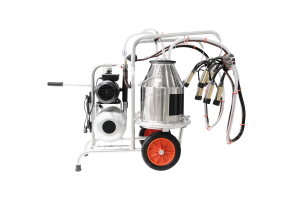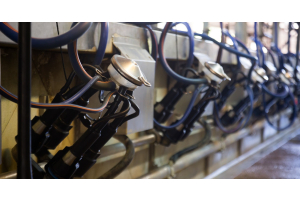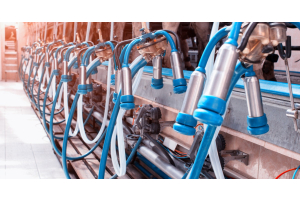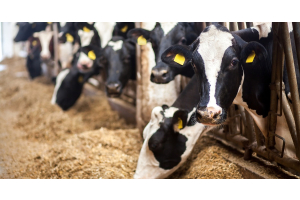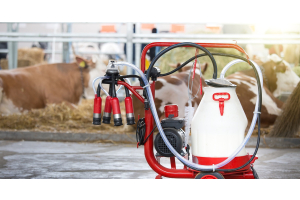Different Types of Milking Strainers: Which One Is Best?
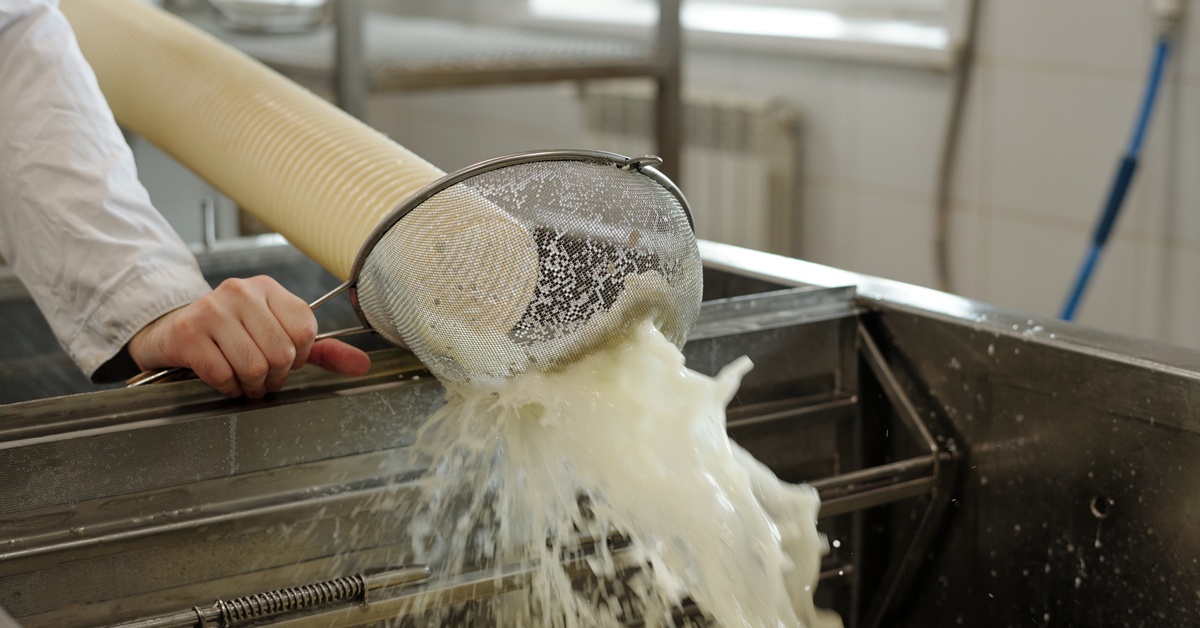
Milk production is a complex process that requires the right tools to ensure quality, hygiene, and efficiency. Among these tools, milking strainers play a critical role in filtering impurities from the milk.
With several types of milking strainers available on the market, each one catering to specific needs, it can be challenging to determine which one is the right fit for your operation. This guide will walk you through the different types of milking strainers so you can select the best one for your needs.
Stainless Steel Filters
Stainless steel filters are known for their durability and longevity. These filters use a fine, perforated metal screen to sieve out impurities from milk effectively.
Thanks to their sturdy design, they can withstand frequent use and are easy to clean, making them a popular choice for large-scale or high-volume dairy operations. However, regular maintenance is key to keeping them in optimal condition.

Cloth Filters
Cloth filters offer a reusable and eco-friendly option for milk filtration. Typically comprised of natural or synthetic fabric, these filters can capture fine particles to produce highly pure milk.
Cloth filters are not only easy to handle but also washable and reusable, making them a budget-friendly choice. However, proper cleaning and drying practices are essential to prevent contamination.
Disposable Paper Filters
Disposable paper filters are prized for their convenience and simplicity. Ready for single use, these filters eliminate the hassle of cleaning and are ideal for farmers who prioritize efficiency and practicality.
This special paper traps impurities while allowing milk to pass through smoothly. Although these filters are cost-effective for small to medium operations, frequent replacement can sometimes add up in larger settings.
Synthetic Nylon Filters
Synthetic nylon filters provide a balance between reusability and precision. These filters are made from high-grade nylon with a tight weave that excels at retaining even the tiniest impurities.
Lightweight and resistant to wear, synthetic nylon filters are easy to clean and highly adaptable to various straining setups. Their versatility makes them a popular option across different scales of dairy farming.
Combination Filters With Inserts
Combination filters with inserts are a versatile choice for dairy farmers who need a customizable option for their straining process. These filters feature a durable outer shell and replaceable inserts that can vary in weave size, allowing for precise control over the filtration level.
The insert captures impurities like debris or hair, while the sturdy outer casing supports frequent use. Their modular design not only extends the filter’s lifespan but also reduces overall maintenance costs by making it easy to swap out inserts.
Filter Socks
Filter socks are cylindrical fabric filters that excel at high-capacity straining tasks, fitting snugly over strainers or other filtration systems.
Milk flows through the sock while impurities like sediment, clots, and fodder residue are trapped in the fabric. Filter socks are valued for their large surface area, allowing for efficient filtering in high-volume operations, and they’re another option that you can clean and reuse.
Plastic Strainer Filters
Plastic strainer filters are lightweight and portable, making them a convenient option for small- to mid-sized dairy setups. These filters feature a rigid frame made from food-grade plastic, paired with a washable mesh for trapping particles.
Their simple design makes them incredibly user-friendly, and their durability guarantees reliable performance over time. Plastic strainers are perfect for quick and straightforward filtration tasks, especially in settings where ease of handling is a priority.
Inline Filters
Inline filters are a smart and space-efficient choice for filtering milk during automated processes. Installed directly within the milk pipeline, these filters continuously capture impurities as milk flows through.
Their compact design minimizes disruption while maintaining the integrity of the filtration process. Inline filters are especially useful in large-scale dairy operations, where automation and consistent milk quality are key priorities.
How To Choose the Right Milking Strainer
Now that you know a little more about the different types of milking strainers, how do you choose the best one for your facility? Here are some factors that can help you decide.
Assess Your Needs
Start by evaluating your dairy setup’s requirements. For example, consider the volume of milk production. Small-scale farmers processing only a few gallons per day may have different needs than large-scale operations handling hundreds of gallons.
Similarly, think about your method of milking. Manual systems might benefit from simpler, easy-to-use strainers. On the other hand, mechanical systems may require strainers that integrate seamlessly with automated equipment.
Evaluate the Material’s Durability
The material of the strainer significantly impacts its performance and longevity. Stainless steel strainers are robust and resistant to wear, making them ideal for heavy-duty use.
For a more lightweight and less expensive option, plastic strainers work well, though they may not last as long. Additionally, disposable strainer filters offer convenience, especially in operations where quick replacement is important, but these may lead to higher ongoing costs.
Consider Filtration Precision
If your goal is to produce premium-grade milk, precision filtration is key. Mesh strainers or advanced insert-based filters are excellent for capturing even the smallest impurities or debris, ensuring high-quality milk suitable for specialized products like artisan cheese. On the other hand, for basic filtration needs, simple strainers may provide a cost-effective solution.

Ease of Cleaning and Maintenance
For frequent use, choose strainers that are easy to clean and sterilize to save time and maintain hygiene. Reusable strainers with removable components can simplify the cleaning process. Alternatively, disposable filters might be a better choice for those prioritizing low maintenance, as they can be replaced quickly without scrubbing.
Budget and Operational Scale
Your budget and operational scale will also play major roles. While stainless steel strainers might have a higher upfront cost, their durability can save money on replacements in the long term. On the other hand, operations with lower production scales might prefer less expensive options, such as plastic strainers, to stay within budget.
Compatibility With Equipment
Lastly, ensure that your milking strainer fits seamlessly with your existing equipment and workflows. For example, if you’re using an automated pipeline milking system, select a strainer that is specifically designed to integrate with it. Proper compatibility avoids disruptions during milking and can enhance overall efficiency.
Remember, the best milking strainer is the one that seamlessly combines performance, durability, and ease of use for your setup. At the Parts Department, we’re dedicated to making dairy processing a little easier. That’s why we have an incredible selection of milk filters to choose from, including disposable and reusable options, as well as different mesh sizes to suit your needs.
We only sell high-quality filters to ensure they can withstand the demands of daily use in a dairy operation. They are also easy to clean and maintain, so they will last for many milking seasons.






